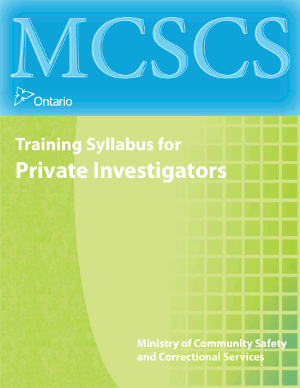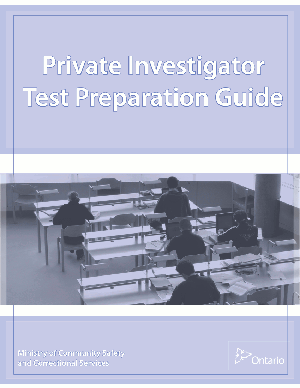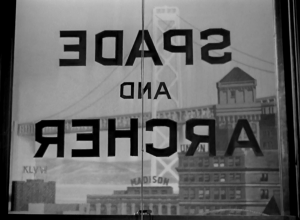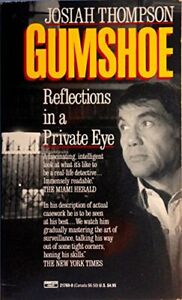Last week I obtained my private investigator’s license.
I expect I’ll be writing about aspects of private investigation fairly regularly now. I’ll start by explaining how I got the license, which took about seven months but would have taken five without the pandemic. Then I’ll mention some other librarian-PIs, some famous investigators, and link to some PI podcasts.
In Canada PIs are licensed by the province or territory. In Ontario the Private Security and Investigative Services Act, 2005 sets out the basic framework for what PIs and security guards do, how licensing works and how complaints about them are handled. Here’s how it defines the job:
Private investigators
(2) A private investigator is a person who performs work, for remuneration, that consists primarily of conducting investigations in order to provide information.
(3) Examples of the types of information referred to in subsection (2) include information on
(a) the character or actions of a person;
(b) the business or occupation of a person; and
(c) the whereabouts of persons or property.
An interesting point in the act is that PIs are forbidden from using terms that imply they are police:
No private investigator, security guard or person who engages in the business of selling the services of private investigators or security guards shall use the following terms or variations of them:
Detective or Private Detective.
Law enforcement.
Police.
Officer.
Ontarians can find everything they need to know to get started on the Ministry of the Solicitor General’s Private security and investigative services pages, including the application process.
There are two stages to getting the license. First, a mandatory training course. Second, a certification exam.

The training course will follow the provincial training syllabus for private investigators (PDF). I took LAWS 247: Private Investigator Training at Fleming College (which I always think of as Sandford Fleming, named after the remarkable engineer), which was done online (of course) through Ontario Learn, a very interesting consortial online instruction system. It was taught by Alex Fishbein of Symmetry Services, and cost about $450. The course ran from September to December; each week there were course notes to read and a multiple choice test, and sometimes there were other small assignments. The workload was not onerous. It would be far more interesting to do the course live, because there are so many questions one wants to ask the instructor, but this was done asynchronously except for one live Zoom session when we prepped for the final exam.
Meeting the minimum mark requirement on that exam gets the student a Training Completion Number, and the information is passed on to the government. With that done, one moves to the second step: the exam.

The certifying exams are administered by Serco, who handle all sorts of things for Canadian governments (and in the UK made a lot of money out of the pandemic). Normally they’re done in person, and I thought I’d have to wait a while before I’d be able to write the test, but I was happy to discover I could do it online. Test-takers need to run Zoom with their camera and mike on, and pan around to show there are no papers on the table, but there’s no requirement for invasive surveillance technology like Proctorio. The exam has sixty multiple-choice questions and candidates have 75 minutes to write it, but I doubt anyone needs the whole time. The Fleming course had prepared me well for it. Reviewing the Private Investigator Test Preparation Guide will give a good sense of what the test covers.
Meeting the minimum mark for that test got me another number, and now I could apply for the license. This is done through ServiceOntario and is all online. Applicants need to show proof of citizenship and that they can work in Canada (scans of a driver’s license and passport cover that) and have a signed form from a guarantor confirming all this is legit. They also need a recent passport-quality photo. Once I had all those it didn’t take long to set up an account, go through the process, upload the documents and pay the $80 fee. Someone somewhere did a criminal check on me and approved the application in about a week. I got a digital license (a fancy name for a PDF of a temporary document) immediately and the real one will come in the mail soon.

So now I’m a licensed private investigator … but that doesn’t mean I can work as one and get paid. I’d need to work for a licensed agency. That would mean working for an existing agency or getting a license for a sole proprietorship, which would cost $700 (plus I’d need insurance). The first I have no intention of doing, and the second is too expensive. And anyway, I have no plans to change my job. I enjoy being a librarian. Who knows what the future may bring, though.
There are a number of librarians who are PIs. Locally I know Marjan Farabaksh, who runs FSO Research. A quick search also turned up Marcy Phelps and Xhenet Aliu (who went the other way: PI turned librarian).
Another librarian turned PI is Cynthia Hetherington, a major name in open source intelligence (OSINT; I must clarify the open source here is not as in FLOSS, though there is CSI Linux). I’m looking forward to learning more about OSINT and how that kind of investigative work overlaps with library work: both involve online research, assessing the validity and authority of information, citing sources, scraping data, and so on. (See OSINTcurio.us or Toddington or OSMOSIScon for more, and be amazed at what Bellingcat is doing.)
I found a great quote by legendary San Francisco PI David Fechheimer (who didn’t have a Wikipedia entry, so I made one).
I’ve always felt that the people best prepared to be private investigators are former graduate students, who know how to use the library.
Shame he overlooked the librarians who run the library.

Fechheimer (who dropped out of grad school to become a PI) was part of a set of great San Francisco investigators with Tink Thompson (who was a tenured philosophy professor, but quit to be a PI), Jack Palladino (“He gave me my first job as a private investigator,” tweeted Errol Morris), Sandra Sutherland and Hal Lipset (both of whom deserve Wikipedia articles). They all had incredible careers. Fechheimer and Thompson were great admirers of Dashiell Hammett, the private investigator who became a novelist. I am too. Sherlock Holmes and the Three Investigators, and later Sam Spade, the Continental Op and Philip Marlowe, are probably the ultimate causes of me getting licensed.
Finally, three podcasts I follow. They’re usually interviews with one person, and cover all sorts of PI work. Even the ads are interesting, because they’re for things aimed at PIs, such as databases of information about people, case management tools, or gear.
- PIs Declassified! (RSS): hosted by Francie Koehler, who has done some really interesting work; the sound quality isn’t the best but she uses the hour to dig into a lot with the guest; I recommend this one the most; try this interview with David Fechheimer and Barry Simon about their work on the John Walker Lindh defence.
- PI Magazine: The Podcast (RSS): hosted by Jim Nanos and Nicole Cusanelli, who run Professional Investigator Magazine.
- PI Perspectives (RSS): hosted by Matthew Spaier.
Francie Koehler and some of the women she’s interviewed opened up a new view on the PI world to me: it’s not all men who used to be cops. There’s an awful lot of that: tough hombres with gravelly voices saying they had twenty-five years in law enforcement, working in narcotics and homicide, seeing horrible things they hope you never have to see.
But there are people like Fechheimer and Thompson, who got into it because they loved The Maltese Falcon and everything about private investigations. And there are others, mostly women, who were working in some related field and discovered they were really good at finding things out, and they liked doing it, so they turned professional. All these seem to be the ones who do pro bono work for the wrongfully convicted and similar projects to help people who have nowhere else to turn, which is a really interesting sector of the work to see.
I’m very happy to have my license, and looking for forward to learning more about private investigation.
 Miskatonic University Press
Miskatonic University Press